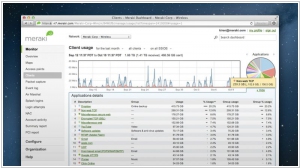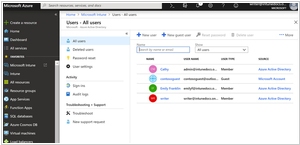Cisco Meraki vs Microsoft Intune
August 23, 2023 | Author: Michael Stromann
Cisco Meraki and Microsoft Intune are distinct solutions within the realm of network and device management, each offering unique features for businesses seeking efficient control over their IT infrastructure. Cisco Meraki is known for its cloud-based network management, providing tools to manage and monitor networking devices, security appliances, and wireless access points from a centralized dashboard. It emphasizes ease of use and scalability, making it an attractive option for organizations with distributed networks. On the other hand, Microsoft Intune is a cloud-based endpoint management solution that focuses on managing and securing devices, applications, and data within the Microsoft ecosystem. It offers features like device management, application deployment, security policies, and conditional access, all integrated with Microsoft 365 services.
See also: Top 10 MDM software
See also: Top 10 MDM software
Cisco Meraki vs Microsoft Intune in our news:
2020. Microsoft updates its Endpoint Manager with improved macOS support
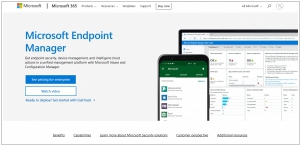
Microsoft has introduced a variety of fresh enhancements to Microsoft Endpoint Manager, the company's comprehensive platform for managing and securing devices within an enterprise setting. This service, which combines the capabilities of Microsoft System Center Configuration Manager with the cloud-based tools of Intune, was launched less than a year ago. The latest updates enhance the existing framework and include enhanced support for macOS and iPad, as well as new tools for establishing connections between mobile devices and on-premises applications. Additionally, the updates introduce additional productivity tools based on the data collected by the service. Moreover, Microsoft has simplified the process for corporate IT departments to remotely provision devices for their employees.
2020. Cisco acquires Modcam to make Meraki smart camera smarter

Cisco has recently completed the acquisition of Modcam, a Swedish startup, and plans to integrate its computer vision technology into its Meraki smart camera portfolio. Although Meraki already offers smart cameras with motion detection and machine learning features, these capabilities are currently limited to individual camera operations. By incorporating Modcam's expertise, Cisco aims to enhance its camera portfolio by enabling information gathering and applying machine learning across multiple cameras, thereby significantly expanding the capabilities of its smart cameras.
2018. Cisco Meraki Introduces MV12 Cloud-Managed Security Cameras
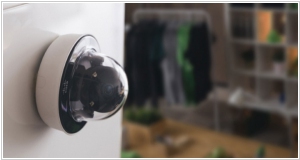
Cisco has made a significant comeback in the realm of physical security with the introduction of its MV22 and MV72 cameras, accompanied by the innovative MV Sense analytics tool. These solutions belong to the Meraki business unit, which Cisco acquired in 2012. The new cloud surveillance system revolutionizes traditional enterprise video deployments by eliminating the need for extensive infrastructure. Instead, all management tasks are consolidated into a single web interface known as the dashboard. With this approach, there is no requirement for servers, virtual machines, or software packages. Cisco operates and maintains the entire cloud infrastructure as a service, offering seamless management to all customers.
2012. Cisco acquires wi-fi security startup Meraki for $1.2B
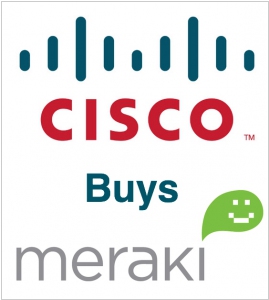
Cisco has completed the acquisition of cloud infrastructure startup, Meraki, for a whopping $1.2 billion. Meraki specializes in delivering on-premise mesh Wi-Fi networking and security devices, along with the accompanying software for seamless management. Its technology enables mid to large-size companies and organizations to establish robust cloud networks without the need for extensive IT resources, making it both convenient and cost-effective. Moreover, it is designed to accommodate the growing trend of employees accessing corporate networks via smartphones and tablets. While the acquisition sets the stage for Meraki to expand Cisco's enterprise offering in the future, for the time being, the focus will remain on serving the mid-market segment and prioritizing convenience.

